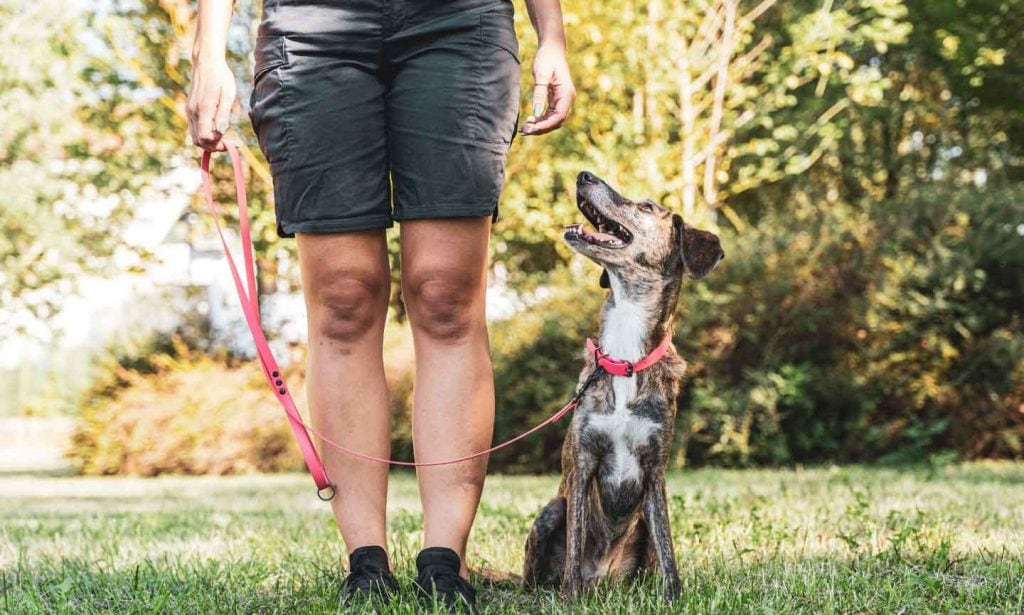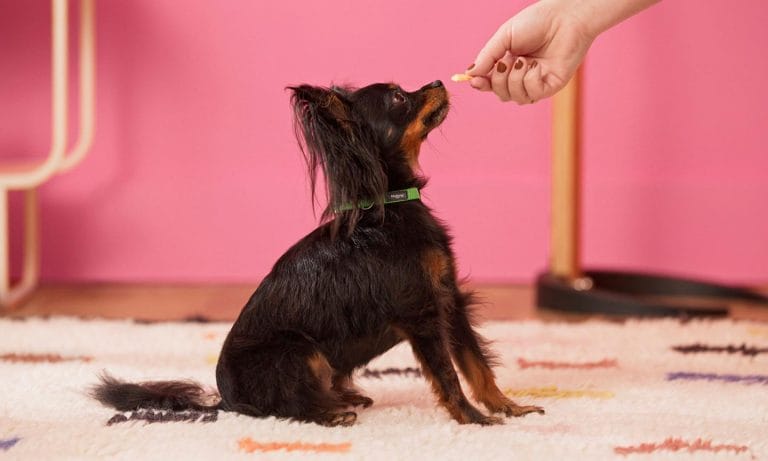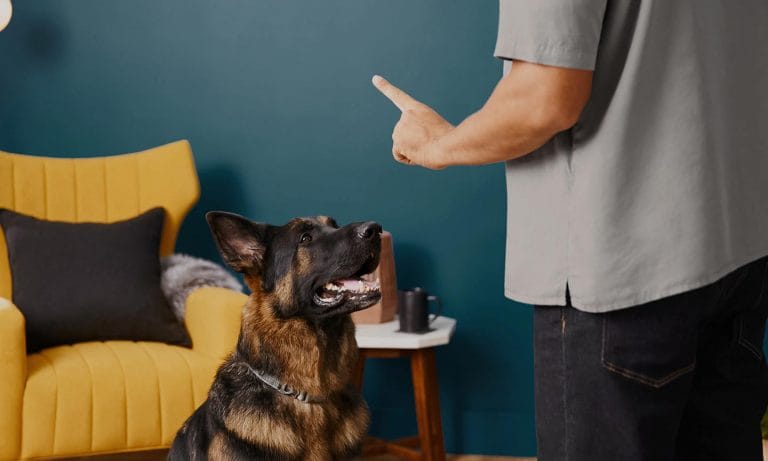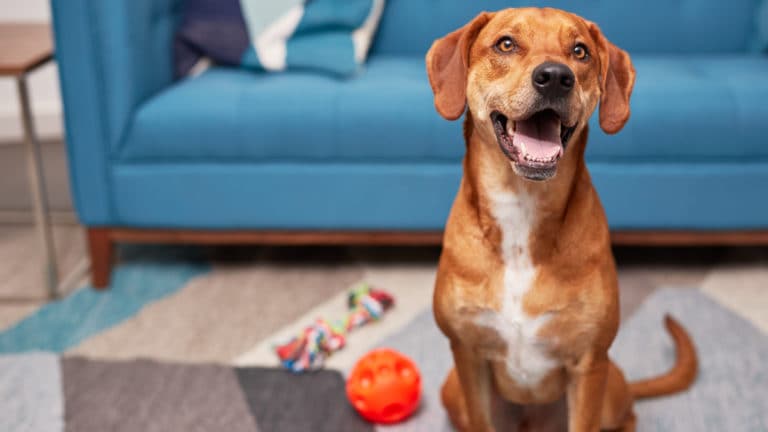In This Guide
What to Look For
Look for these attributes to find the right dog trainer for you:
- A Professional Certification: Dog training is an unregulated profession, which means literally any person can start a business as a dog trainer, even if they’ve never met a dog before. To ensure you’re working with a real pro, make sure your trainer has been certified by a respected professional organization (more on those below).
- A Positive Reinforcement Approach: Positive reinforcement is a training methodology that’s backed by research, as well as supported by most professional dog training organizations. Using this approach means rewarding your pup’s good behavior with treats, toys and/or praise, and never punishing them when they don’t do what you want. No matter what a dog is learning, from basic training to more difficult skills, studies have proven that positive reinforcement is as effective as (and in some ways better than) other training methods—and a good dog trainer will be well-versed in it.
- Experience With Your Training Goals: From basic manners to complex tasks like assisting people with disabilities, dogs can learn to do a wide range of things—and not every trainer will have experience in all of them. Ask yourself what you hope to get out of dog training, and then search for a trainer who specializes in it.
Group Classes Vs. Private Sessions
- Dog training classes are a relatively inexpensive option for manners and obedience. They also provide safe socialization opportunities. Puppy classes run by a certified trainer are great for new puppies who are learning about the world—and because the demand for puppy training is especially high, there’s likely to be at least one good puppy class in your area. Puppy classes are usually 4-6 weeks long, with one class per week.
But there are lots of other types of training classes, too. The American Kennel Club (AKC) offers a Canine Good Citizen (CGC) course that trains pups and their parents on everything from meeting strangers to basic obedience training and walking on leash. And if you’re interested in obedience competitions, local obedience clubs run obedience classes, too.
- Individual sessions (aka private lessons) can be a good fit for dogs who are nervous around strangers, or if you have very specific training needs—for example, if you want your pup to learn a dog sport like agility or dock diving, or learn skills like the heel command to participate in obedience competitions. If your puppy hasn’t had enough vaccinations to be in a group class, individual sessions with a professional dog trainer are good place to start, too.
How Much Does a Dog Trainer Cost?
- Dog training classes cost between $30 and $80 per training session.
- Private sessions cost an average of $140 per session.
Find a Dog Trainer Near You
To ensure you’re working with a real pro, make sure your trainer has been certified by one of these groups:
- The Certification Council for Professional Dog Trainers (CCPDT)
- The International Association of Animal Behavior Consultants (IAABC)
- Victoria Stilwell Positively
- The Academy for Dog Trainers
- Karen Pryor Academy (KPA)
- The Association of Professional Dog Trainers (APDT)
Each of those organizations require certificants to adhere to educational and ethical standards. These certifications indicate your trainer has learned about dog behavior and training, and uses appropriate training methods. Each has an online directory that you can search according to your location to find a certified dog trainer near you.
Top Training Tips
Share:









